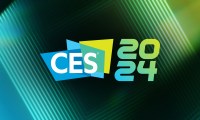
Today’s EVs may be stuffed to the gills with massive batteries, but Hyundai rolled into CES 2024 with a reminder: It hasn’t given up on hydrogen yet. In fact, it’s doubling down and finding solutions in odd places, like the toilet and recycling bin.
As part of a plan to develop hydrogen from more environmentally friendly sources, Hyundai has developed processes for obtaining hydrogen from sewage and waste plastics.
According to Chang Hwan Kim, Hyundai’s head of fuel cell development, sewage can be digested with a microorganism that produces biogas, which can then be “upgraded” to hydrogen. Plastic, meanwhile, is melted into a black, honey-like goo, which can also be turned into gas and further refined into hydrogen. Hyundai claims the process can even be used with otherwise non-recyclable plastics. Currently, most industrially available hydrogen is refined from natural gas, making it reliant on fossil fuels.
Hyundai sells just one hydrogen fuel cell vehicle right now, the Nexo, a model it introduced in 2018. But don’t expect to see its lineup shift away from batteries anytime soon. “Batteries and fuel cells are not really competing technologies,” said Kim. “Batteries are energy storage and fuel cells are energy conversion.” Because fuel cells offer superior energy density, Hyundai will focus on bringing them to industrial applications like large trucks, construction equipment, and even ships. A fleet of 30 big rigs powered by its Xcient fuel cells is already operating at the Port of Oakland.
To improve hydrogen infrastructure, Hyundai will also participate in a U.S. government initiative to develop seven regional hydrogen hubs around the United States, use hydrogen at a new EV factory under construction in the state of Georgia, and partner with Indonesia to begin deploying its waste-to-hydrogen process in West Java. The company has invested $1.4 billion in hydrogen since it began development of fuel cells in 1998 and intends to spend another $1.4 billion in the next three years.



